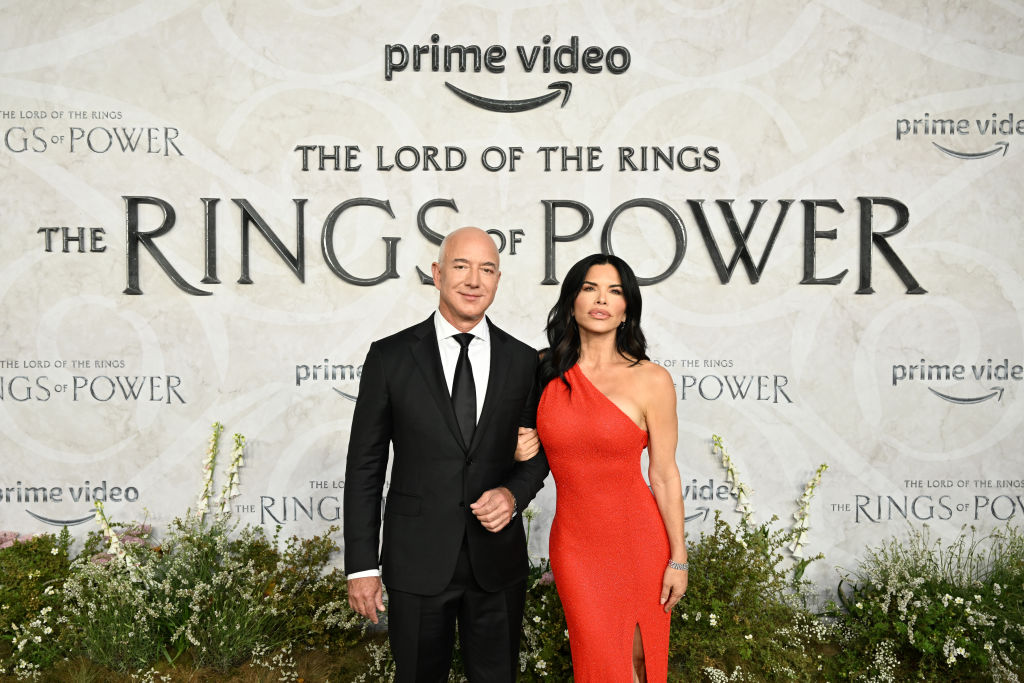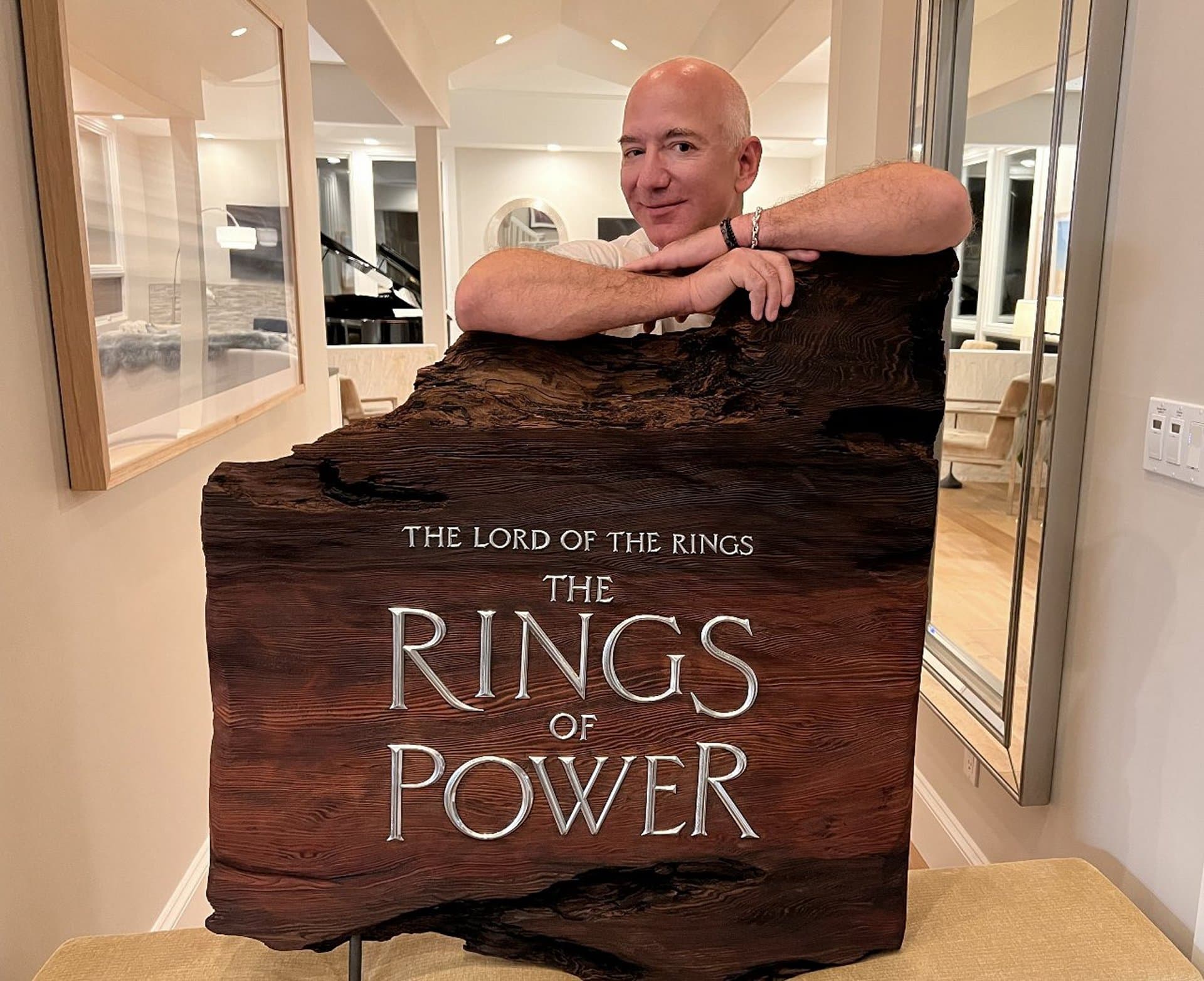
Amazon’s The Lord of the Rings: The Rings of Power debuted last Thursday to mostly positive reviews from the critics. But it’s not obvious how audiences received it – largely because Jeff Bezos doesn’t want us to know. The Prime service suspended viewer ratings without explanation, preventing their paying customers from rendering feedback.
Despite Amazon’s silence on its motive for the move, the media seem to have it figured out. Forbes suggested, “Amazon didn’t want to be broadcasting its premiere with a low score right next to it”. Considering why viewers might choose to award a low score to the show, the magazine offered this explanation:
“Take your pick of reasons. It’s a combination of racism, misogyny, and supposed unfaithfulness to Tolkien’s original work. Sometimes all three of these reasons are the same.”
The Hollywood Reporter asked “Where’s a wizard to fight trolls when you need one?” and accused fans of review bombing, citing this audience review from Rotten Tomatoes as an example of a bomb:
“Reflecting world diversity in Middle Earth is an odd goal, albeit good for marketing maybe, but it was clearly more important then [sic] making a functional TV series.”

Other outlets quoted anonymous Amazon sources who insist the ban is a new policy, which as a matter of course extends a 72-hour review moratorium to all new releases. As of the time of writing, that three-day period has expired, and user reviews remain suspended.
Whatever the truth behind the action – whether it was reflexive or standard procedure – Amazon’s instincts, and the media’s reaction, betrays a venal attitude.
In their mind, paying customers are not authorised to have views which are deviant to the critic class. It’s illegitimate for worker-consumers to complain about products, for taste is the preserve of their betters, who will sample the goods and pass down their verdicts as tablets from a mountain. In the event a plebian levels critique of the company whose value is measured in the trillions, high-profile proxies and outriders will circle the wagons and put them in their place.
You see, those users leaving ratings aren’t human beings with opinions, they are monsters, or by another name, trolls – of the kind that are slain in the Rings of Power. They don’t just leave a review, they deploy a so-called bomb, an act of savage and explosive violence. And if that’s not enough, they’re all racist too.

The stamping out of visible dissent has become a mainstay of corporate procedure. In 2018 Netflix removed user reviews from its service – about which Mashable remarked that “trolls are going to need to find a new place to complain about the ruination of their childhoods”.
Last year YouTube decided to hide the number of dislikes awarded to videos from public view. In their reporting Variety bemoaned that the streaming giant had been “targeted by the most massive dislike attack in its history”. Twitter and Facebook’s artificial intelligence hides so many comments that if you’re talking about anything other than your dead cat – don’t bother – no one will see it.
Twenty years ago, the internet was awash with forums that lived up to the spirit of their ancient namesake. The abundance of services allowed users to contribute to the forum whose rules and regulations they found most agreeable, a free market if you like.
Today though, these old sites are barren, thanks to Silicon Valley’s oligopoly. The tech giants constitute a cartel that conspire to limit your power, and if you don’t like it then have fun not using the internet. It almost makes you regret abandoning Ask Jeeves.
Once upon a time internet users enjoyed a suite of interactive options with which they could interface with digital platforms and the content they hosted. Those of a certain age might recall video responses on YouTube, the five-star rating system, or a time before the entire comment section could be disabled. Now when browsing Google’s video streaming service, you can leave a thumbs up, or a thumbs down – the latter of which won’t be seen.
Opportunities for democratic input within the online space are being stripped away. It’s gone so far we can hardly be called users at all – more like passengers on a rollercoaster train at the carnival of the damned. Browsing these services is to look upon a Potemkin Pyongyang storefront, with guards twitching to accuse you of being a counter-revolutionary if a subversive thought can be read on your lips – or your clicks. There is only the possibility of consumption – make sure you give that latest Netflix film the double thumbs up so the algorithm can waste more of your life with content!

The interactive opportunities of old had utility – they emulated the Blockbuster experience of browsing with friends and asking recommendations of sage store clerks. It almost seems silly now, to leave the work pod and cross the threshold of a physical store, to talk to a real human – but this used to happen regularly, and customers championed actual opinions about media, without being accused of attacking, trolling, or racism.
Similarly, with cinema, you visit with other actual real people, and are surrounded by them – you can see their faces, hear their groans or cheers, and know how the film was received, and by who. But when I browse GoogleflixPrimeCorp+ all I see is a montage of glossy promotional images and blushing blurbs – the vendor’s voice that blends into white noise to my lizard brain. You have to go to an external source to hear the echoes of that Blockbuster patter, to IMDB or Rotten Tomatoes – itself a feat if you’re on a Smart TV or a phone – and who knows how long these outlets will survive in their current form.
We don’t need the sterile safe space of the digital storefront. Customers aren’t beasts to be slain when they express their opinions. We could do with more critique, and less all of the all Americana everything is amazing artifice. Not everything is the ‘most epic-est’ thing to happen since the last thing Mark Kermode told you to like. The censorious regime coming out of California would do well to disappear up its own fundament – and with it, those media cheerleaders who brand their critics with the mark of the beast.
If nothing else, I want reviews back because they’re funny. Here’s a favourite of mine from a great restaurant I like to frequent, that serves as a fantastic touch and feel for the texture of life in our country:
Didn’t do Carling. One star.


